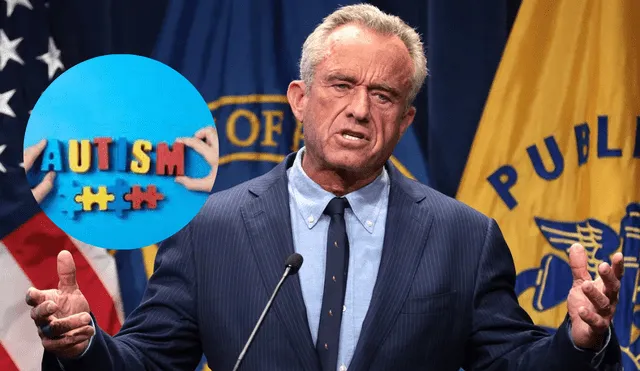RFK Jr. claims autism rates impact more than COVID
In a controversial interview, U.S. Health Secretary Robert F. Kennedy Jr. claims autism rates have a bigger impact than COVID-19, asserting economic costs and societal impacts. Autism advocates criticize his remarks as harmful.

In a controversial interview on April 20, 2025, U.S. Secretary of Health and Human Services Robert F. Kennedy Jr. claimed that autism has a more significant impact on American society than the COVID-19 pandemic.
Speaking on The Cats Roundtable radio show, Kennedy said, “It dwarfs the COVID epidemic because COVID killed old people. Autism affects children and affects them at the beginning of their lives, the beginning of their productivity.”

ALSO SEE: Pete Hegseth shared Yemen attack plans in second Signal chat with wife, brother and lawyer
RFK Jr.’s statement on the economic cost of autism
RFK Jr. states that the economic cost of autism will reach over “$1 trillion dollars a year” by 2035, but he did not provide any source for this fact. He went on to claim that autism's impact on families and communities is devastating, saying that their long-term consequences for the nation's economic productivity was at risk.
On April 16, RFK Jr. made similar remarks on a press conference stating that autism "destroys families" and described that kids with autism will grow up and "never pay taxes, hold a job, or play baseball,” drawing criticism from autism experts.

ALSO SEE: Pope Francis meets with Vice President JD Vance on Easter morning despite political tensions
Rise of autism diagnosis in the U.S.
These statements sparked outrage among autism advocates, whom have denounced RFK Jr. for perpetuating harmful stereotypes. One of them, Alison Singer, president of the Autism Science Foundation, accused him for suggesting that people with an autism diagnosis lead lives of little value, which is not the case, as she told CNN.
RFK's remarks coincide with Center for Disease Control and Prevention (CDC)'s most recent study, which reported that 1 in 38 kids will be diagnosed with autism before they reach the age of 8 years old. This is a considerable increase in diagnosis compared to past decades, but this is due to improved diagnosis methods rather than a rise in the disorder.











